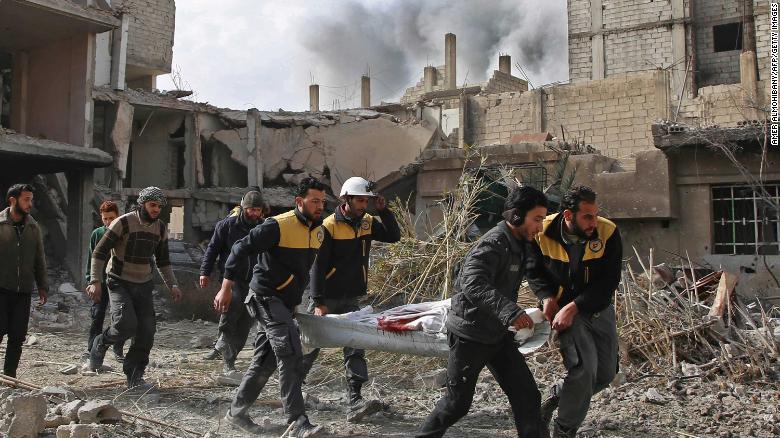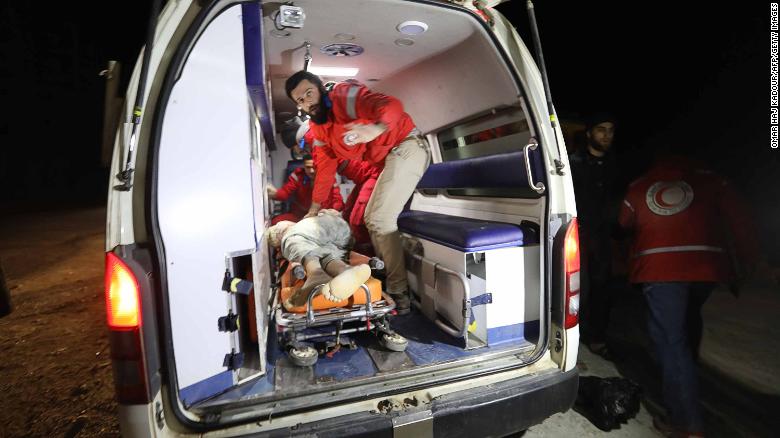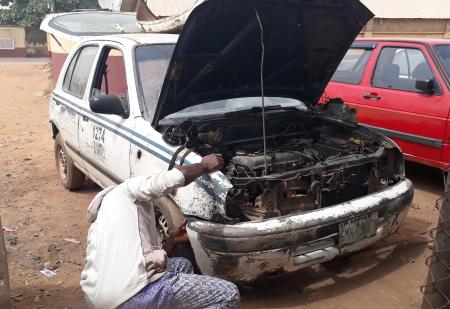
Waves of deadly airstrikes against rebel-held areas in Syria have made this week "one of the bloodiest periods of the entire conflict," the UN human rights chief said Saturday.
Opposition-controlled
areas in Syria's northwestern province of Idlib and Eastern Ghouta,
outside the capital, Damascus, have suffered intensified bombardment by
what observers say are Russian-backed Syrian government forces.
UN
High Commissioner for Human Rights Zeid Ra'ad Al Hussein called for
urgent international action to halt the bloodshed after reports of 277
civilian deaths between Sunday and Friday. More than 800 civilians also
were reported injured, the UN human rights office said.
The past week has been one of the
bloodiest periods of the entire conflict, with wave after wave of deadly
airstrikes leading to civilian casualties in areas of Eastern Ghouta
and Idlib," Zeid said in a strongly worded statement.

"The
no-holds-barred nature of this assault is evidenced by reports that at
least nine medical facilities, six of them in Idlib and three in Eastern
Ghouta, were hit by airstrikes. Even by Syria's atrocious standards,
these are exceptionally deplorable developments."
Paramedics
and volunteers were also killed and injured in a number of places
"after second, third or fourth rounds of airstrikes apparently
deliberately targeted places that had already been hit earlier in the
day," the statement said.
More than 200 of those killed were in Eastern Ghouta -- more than a quarter of them were children.

At the same time, rockets and mortars
continue to be fired from rebel-held areas in residential areas of
government-held Damascus and surrounding suburbs, the statement said. At
least seven civilians have been reported killed and 18 injured between
Tuesday and Friday, it said.
Zeid noted that both Idlib and Eastern Ghouta are supposed to be "de-escalation zones" according to a peace agreement struck by Russia, Turkey and Iran in May.
At
least 2 million civilians live in Idlib province, according to the UN
human rights office, while some 350,000 people are believed to be
trapped in the Eastern Ghouta area.
According to the statement, the UN
office staff has received reports and video footage suggesting that
"toxic agents" may have been released following airstrikes Sunday on a
residential area of Saraqeb. UN human rights experts said Tuesday they
were investigating reports of alleged chlorine bomb attacks on civilians in Saraqeb and the city of Douma in Eastern Ghouta.
Zeid called for civilians to be protected and for the "prevailing climate of impunity" to end.
"After
seven years of paralysis in the (UN) Security Council, the situation in
Syria is crying out to be referred to the International Criminal Court,
as well as for a much more concerted effort by (s)tates to bring
peace," he said.
"The conduct and
management of this war has been utterly shameful from the outset, and
the failure to end it marks an epic failure of global diplomacy."

0 comments:
Post a Comment